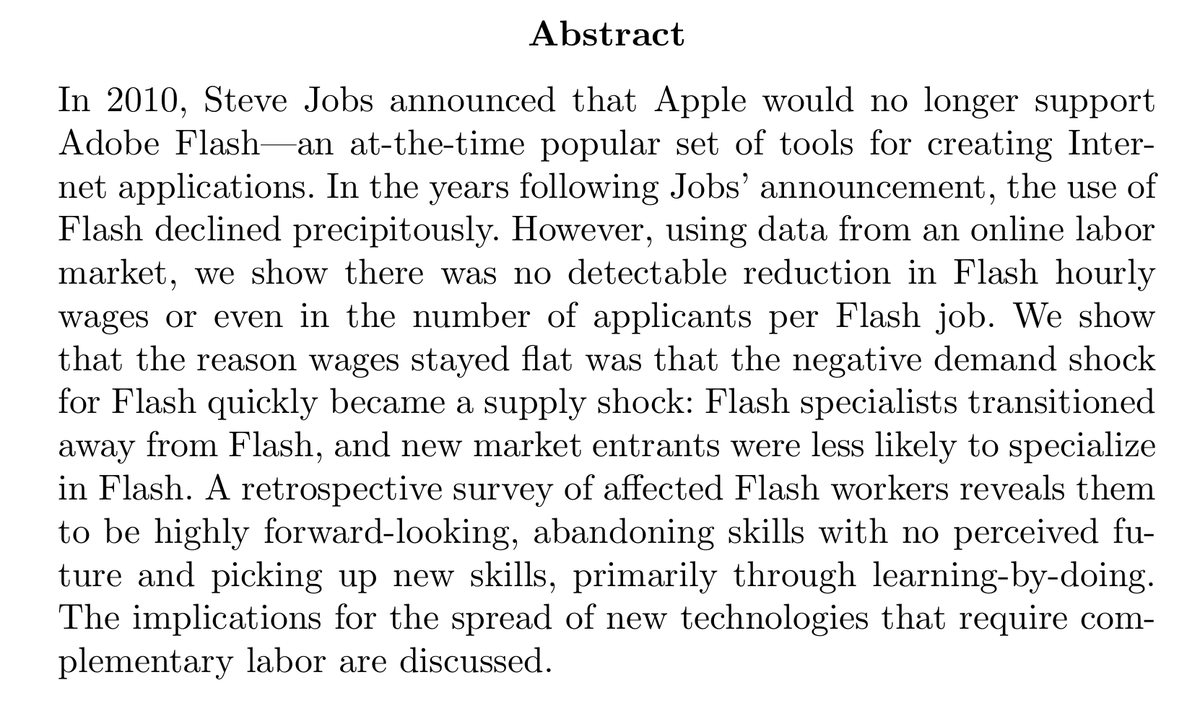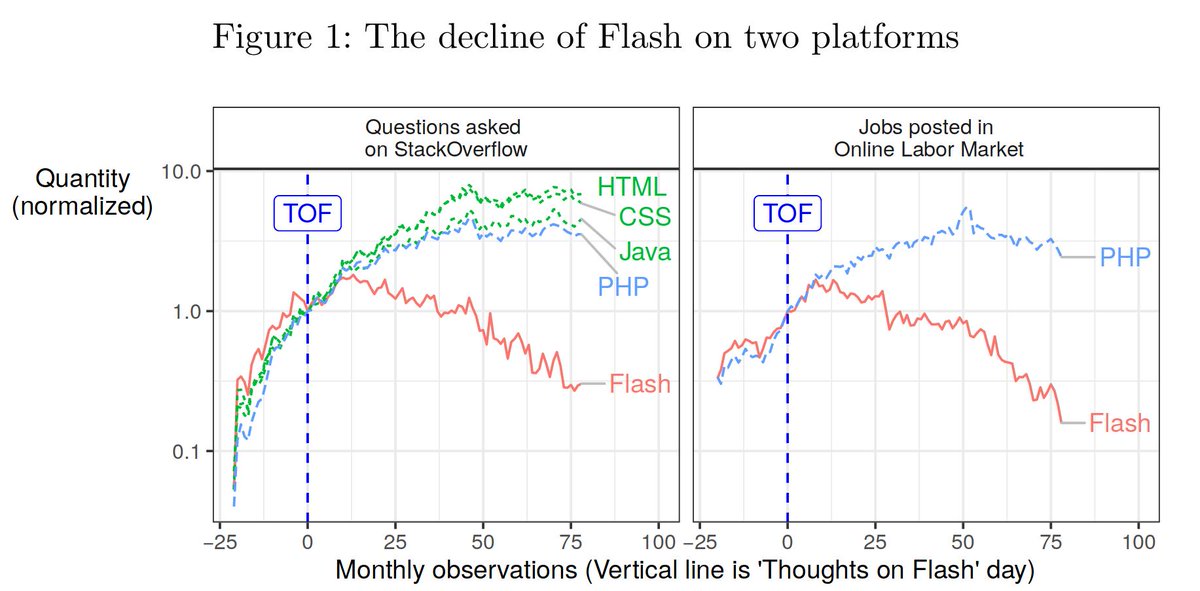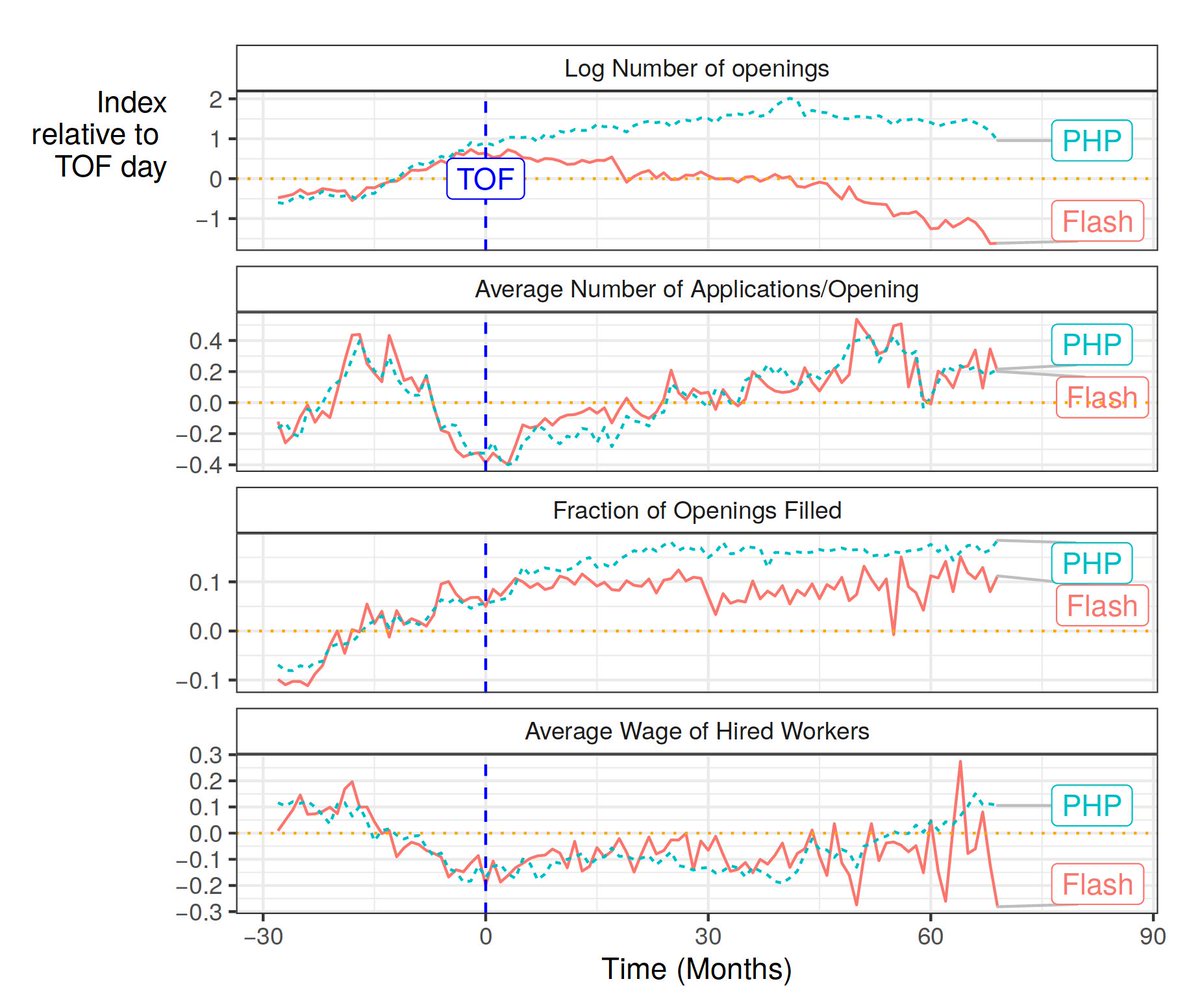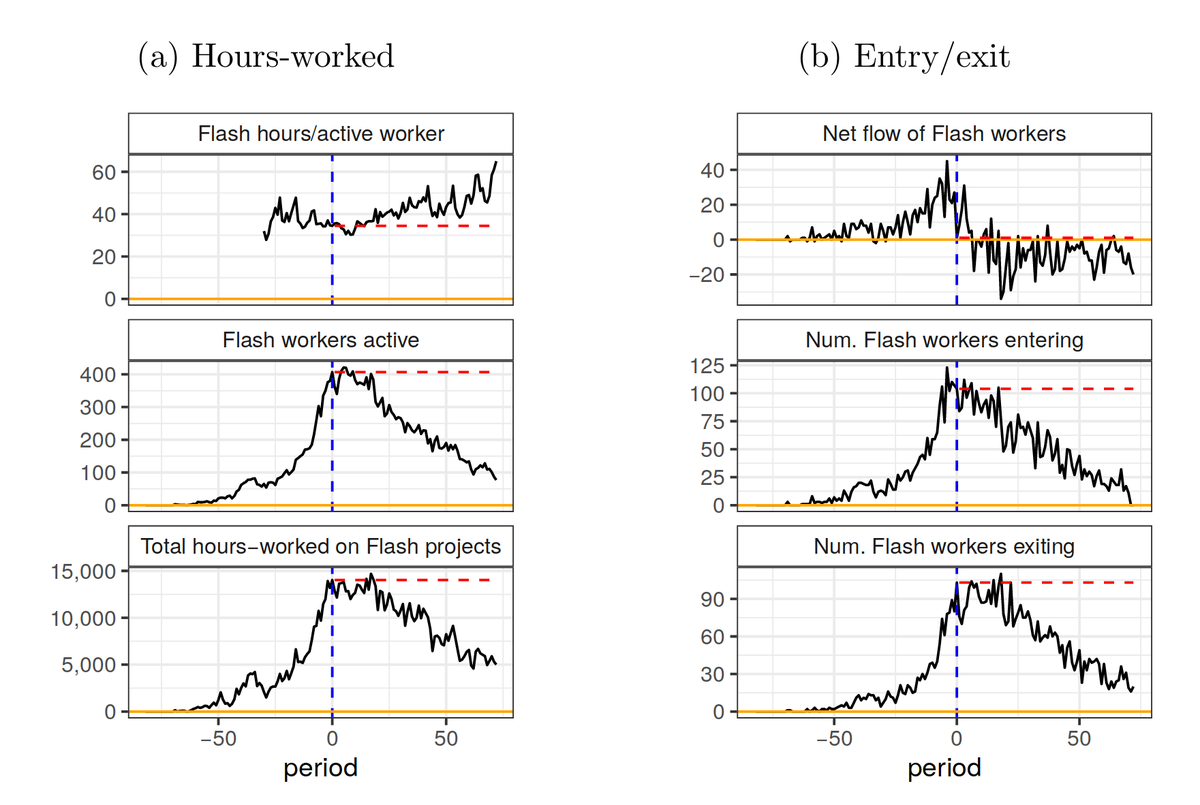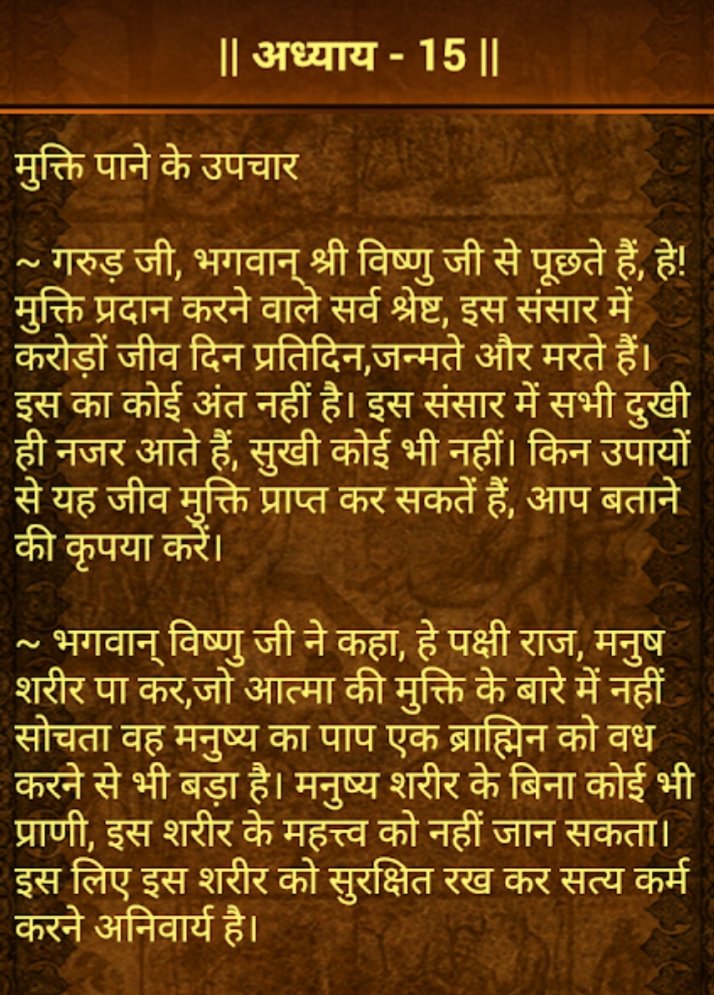We aren't doing this near enough.
Some of the things I've learned in more than 20 years in the tech industry.
You need to hear these.
🧵👇
We aren't doing this near enough.
No small improvement is too small.
Just aim for something new every day, and you'll be surprised at the end.
Be the person that pulls everyone out of the rabbit holes.
Great results will get you farther than processes, but good processes can help you achieve good results.
It's funny how everything you share finds a way to reward you back.
We all make mistakes. Move on from them and focus on what's coming.
Ask away!
(There are, however, stupid people with fragile egos that get bothered when others ask. Ignore them.)
Embrace change.
People fantasize about perfection, but perfectionism rarely wins.
Shipping more often will give you better odds than gilding the lily.
What you know today will be outdated tomorrow.
Make a plan to keep up and follow it... or you'll get behind.
(And it looks horrible in your resume.)
More from Santiago
10 machine learning YouTube videos.
On libraries, algorithms, and tools.
(If you want to start with machine learning, having a comprehensive set of hands-on tutorials you can always refer to is fundamental.)
🧵👇
1⃣ Notebooks are a fantastic way to code, experiment, and communicate your results.
Take a look at @CoreyMSchafer's fantastic 30-minute tutorial on Jupyter Notebooks.
https://t.co/HqE9yt8TkB

2⃣ The Pandas library is the gold-standard to manipulate structured data.
Check out @joejamesusa's "Pandas Tutorial. Intro to DataFrames."
https://t.co/aOLh0dcGF5

3⃣ Data visualization is key for anyone practicing machine learning.
Check out @blondiebytes's "Learn Matplotlib in 6 minutes" tutorial.
https://t.co/QxjsODI1HB

4⃣ Another trendy data visualization library is Seaborn.
@NewThinkTank put together "Seaborn Tutorial 2020," which I highly recommend.
https://t.co/eAU5NBucbm
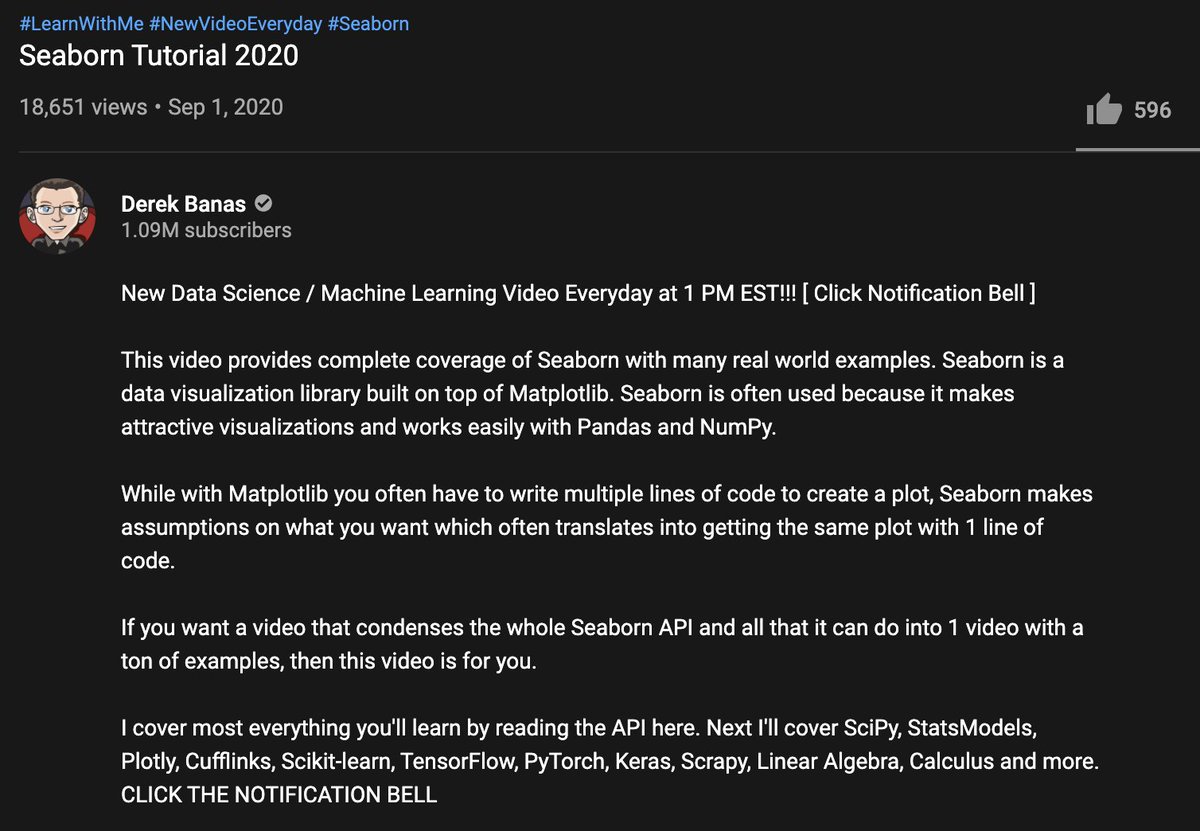
On libraries, algorithms, and tools.
(If you want to start with machine learning, having a comprehensive set of hands-on tutorials you can always refer to is fundamental.)
🧵👇
1⃣ Notebooks are a fantastic way to code, experiment, and communicate your results.
Take a look at @CoreyMSchafer's fantastic 30-minute tutorial on Jupyter Notebooks.
https://t.co/HqE9yt8TkB

2⃣ The Pandas library is the gold-standard to manipulate structured data.
Check out @joejamesusa's "Pandas Tutorial. Intro to DataFrames."
https://t.co/aOLh0dcGF5

3⃣ Data visualization is key for anyone practicing machine learning.
Check out @blondiebytes's "Learn Matplotlib in 6 minutes" tutorial.
https://t.co/QxjsODI1HB

4⃣ Another trendy data visualization library is Seaborn.
@NewThinkTank put together "Seaborn Tutorial 2020," which I highly recommend.
https://t.co/eAU5NBucbm

Free machine learning education.
Many top universities are making their Machine Learning and Deep Learning programs publicly available. All of this information is now online and free for everyone!
Here are 6 of these programs. Pick one and get started!
↓
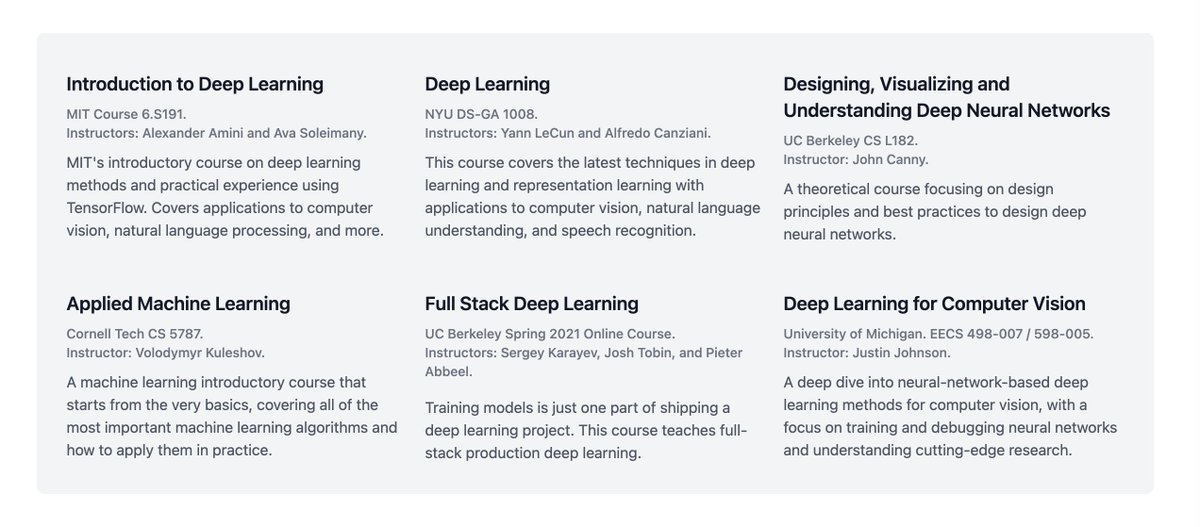
Introduction to Deep Learning
MIT Course 6.S191
Alexander Amini and Ava Soleimany
Introductory course on deep learning methods and practical experience using TensorFlow. Covers applications to computer vision, natural language processing, and more.
https://t.co/Uxx97WPCfR
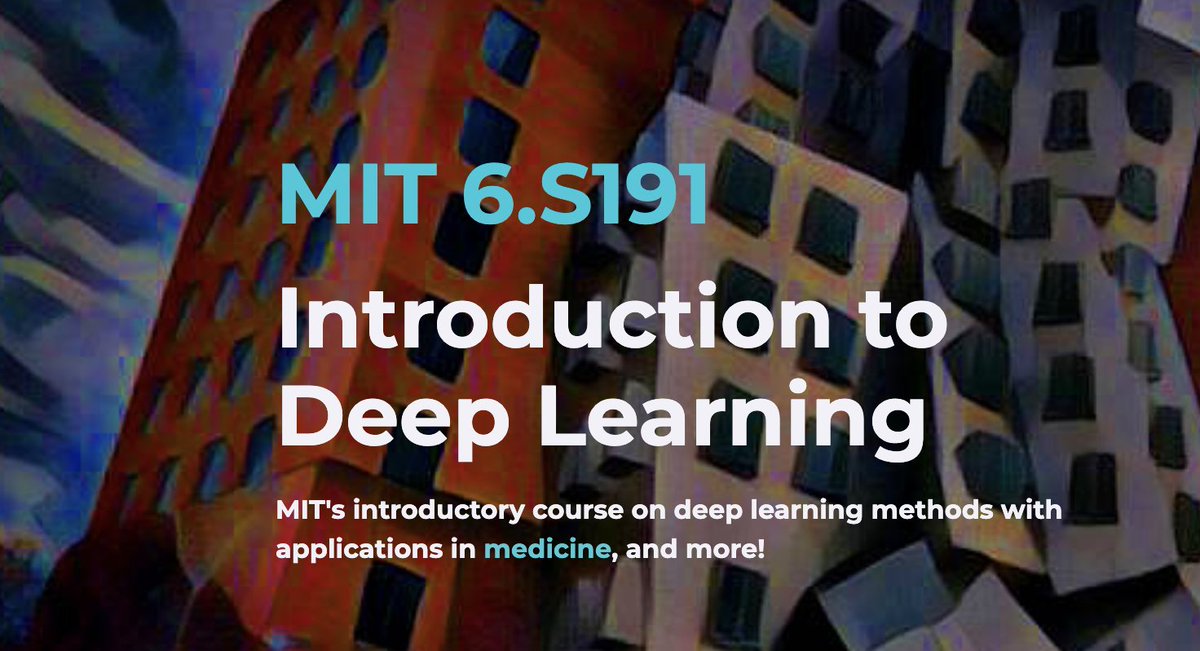
Deep Learning
NYU DS-GA 1008
Yann LeCun and Alfredo Canziani
This course covers the latest techniques in deep learning and representation learning with applications to computer vision, natural language understanding, and speech recognition.
https://t.co/cKzpDOBVl1
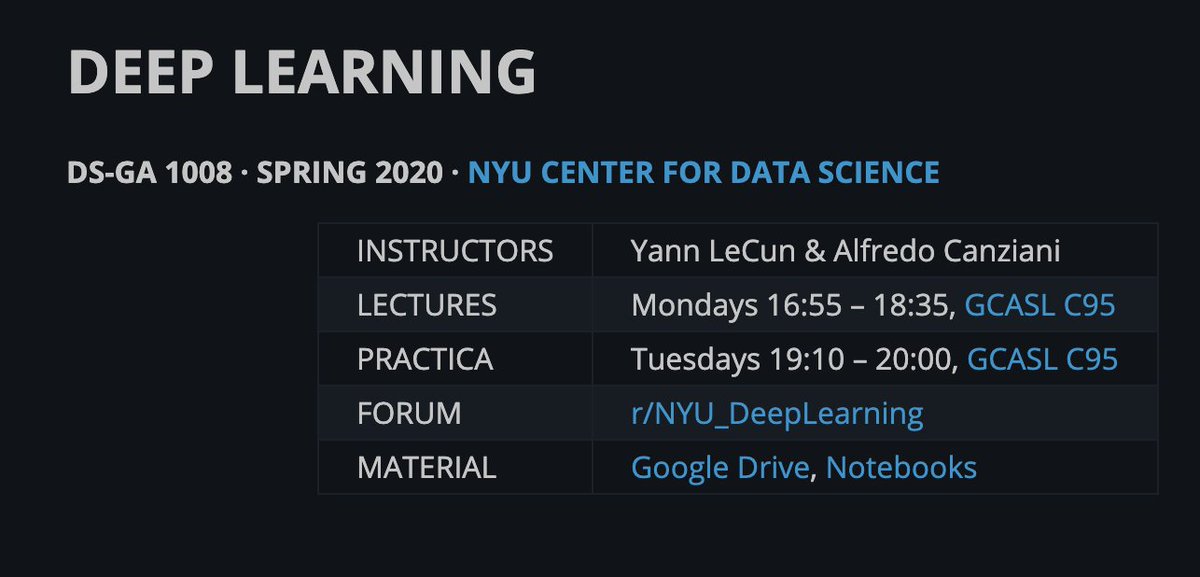
Designing, Visualizing, and Understanding Deep Neural Networks
UC Berkeley CS L182
John Canny
A theoretical course focusing on design principles and best practices to design deep neural networks.
https://t.co/1TFUAIrAKb
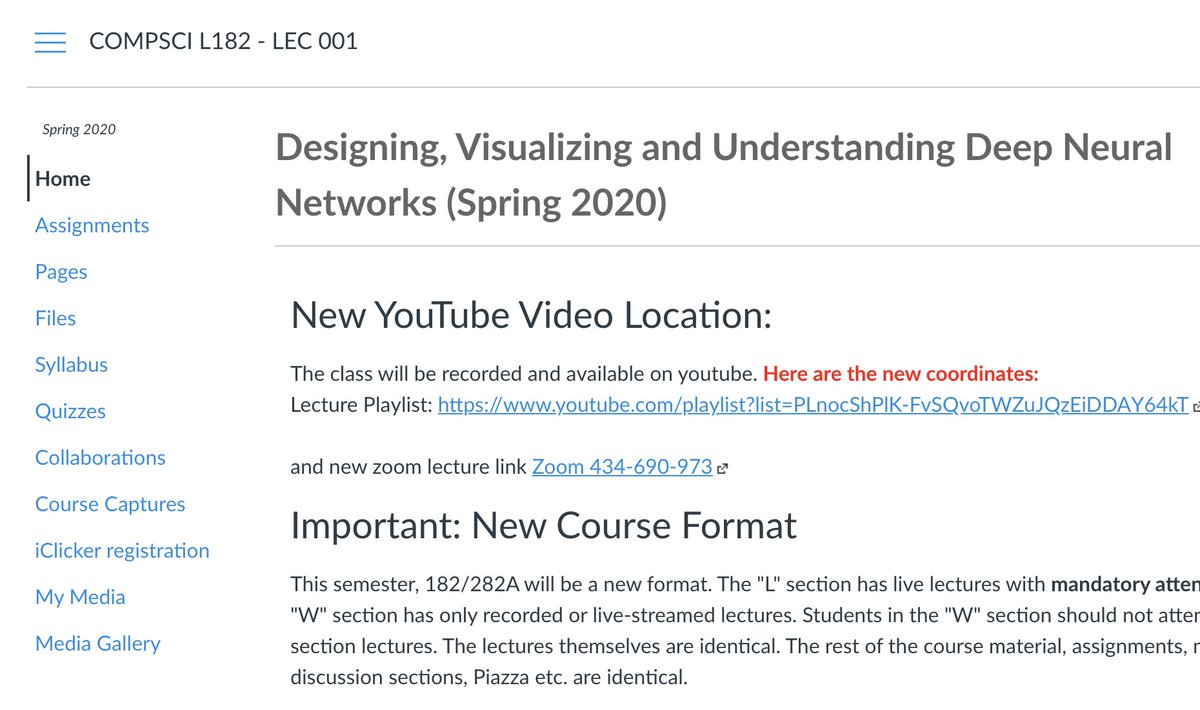
Applied Machine Learning
Cornell Tech CS 5787
Volodymyr Kuleshov
A machine learning introductory course that starts from the very basics, covering all of the most important machine learning algorithms and how to apply them in practice.
https://t.co/hD5no8Pdfa
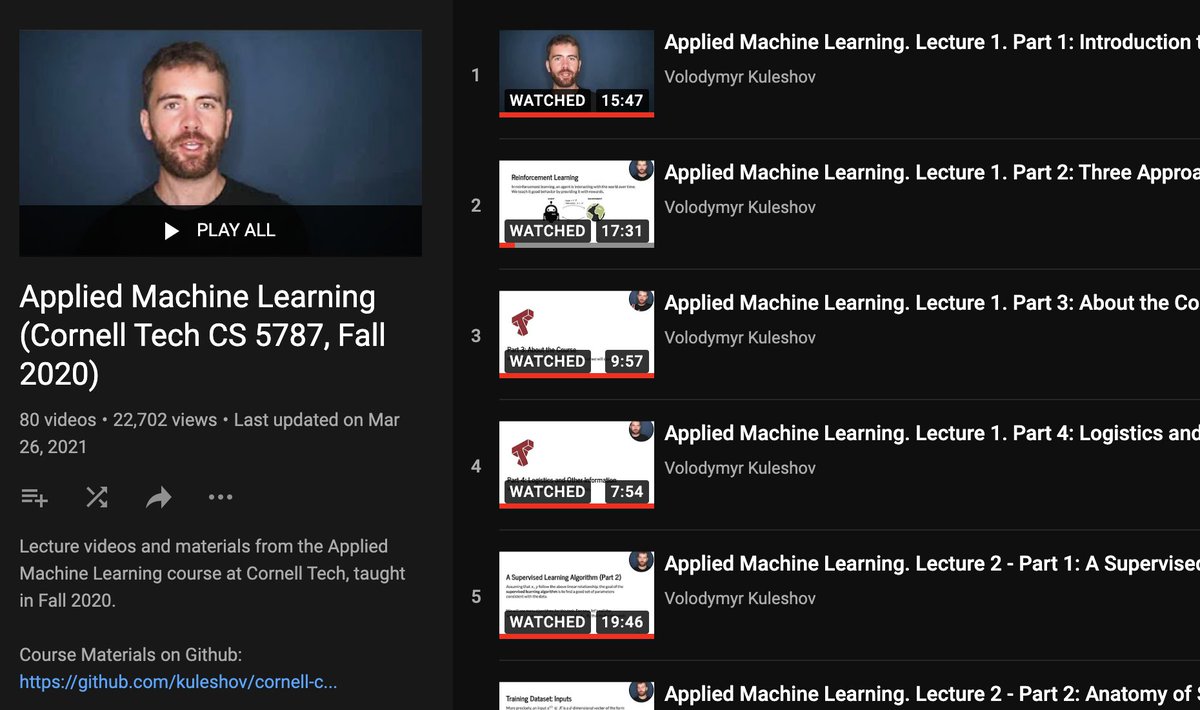
Many top universities are making their Machine Learning and Deep Learning programs publicly available. All of this information is now online and free for everyone!
Here are 6 of these programs. Pick one and get started!
↓

Introduction to Deep Learning
MIT Course 6.S191
Alexander Amini and Ava Soleimany
Introductory course on deep learning methods and practical experience using TensorFlow. Covers applications to computer vision, natural language processing, and more.
https://t.co/Uxx97WPCfR

Deep Learning
NYU DS-GA 1008
Yann LeCun and Alfredo Canziani
This course covers the latest techniques in deep learning and representation learning with applications to computer vision, natural language understanding, and speech recognition.
https://t.co/cKzpDOBVl1

Designing, Visualizing, and Understanding Deep Neural Networks
UC Berkeley CS L182
John Canny
A theoretical course focusing on design principles and best practices to design deep neural networks.
https://t.co/1TFUAIrAKb

Applied Machine Learning
Cornell Tech CS 5787
Volodymyr Kuleshov
A machine learning introductory course that starts from the very basics, covering all of the most important machine learning algorithms and how to apply them in practice.
https://t.co/hD5no8Pdfa

12 machine learning YouTube videos.
On libraries, algorithms, tools, and theory.
↓
1. Jupyter Notebooks: https://t.co/HqE9yt8TkB
2. Pandas: https://t.co/aOLh0dcGF5
3. Matplotlib: https://t.co/tKADpmihkh
4. Seaborn: https://t.co/s8EUxh6x1f

5. Numpy: https://t.co/pJoc0Lfjwm
6. Decision Trees: https://t.co/tKtUpO1K3l
7. Neural Networks: https://t.co/bc7emyjc9q
8. Scikit-Learn: https://t.co/LrKG7cMxRq
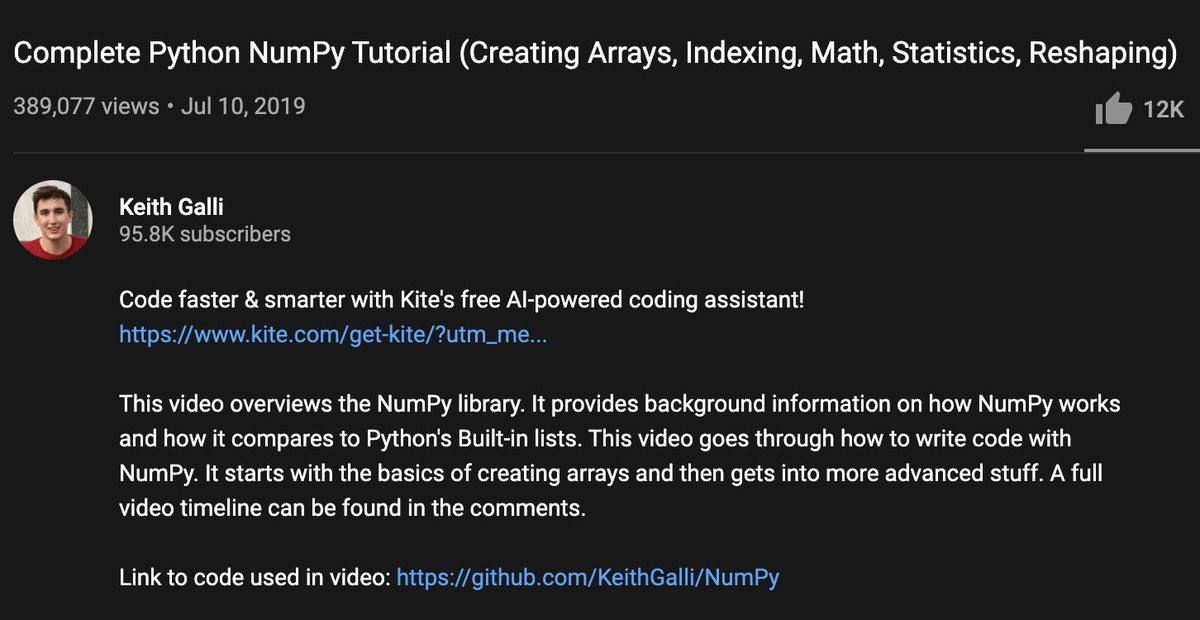
9. TensorFlow: https://t.co/fhO6T9sblU
10. PyTorch: https://t.co/5w9mJxijdd
11. Essense of Linear Algebra: https://t.co/o3kOnxl90i
12. Essense of Calculus: https://t.co/rfo7v0cpR4
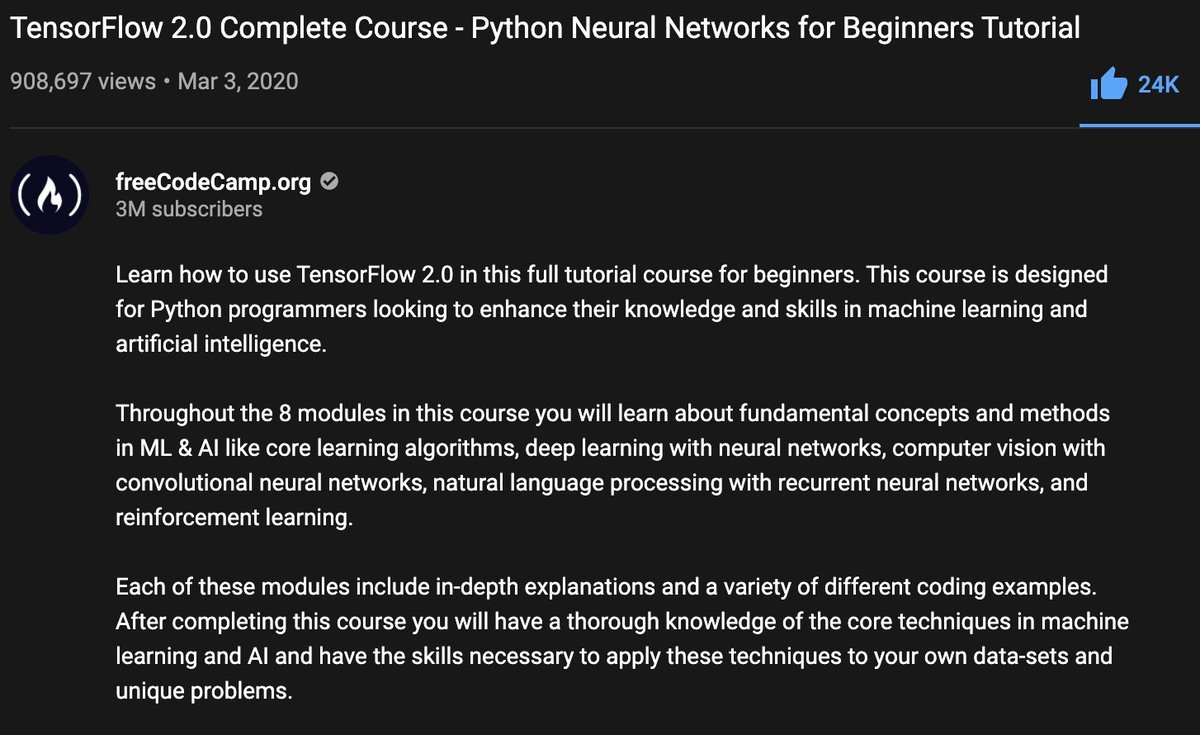
On libraries, algorithms, tools, and theory.
↓
1. Jupyter Notebooks: https://t.co/HqE9yt8TkB
2. Pandas: https://t.co/aOLh0dcGF5
3. Matplotlib: https://t.co/tKADpmihkh
4. Seaborn: https://t.co/s8EUxh6x1f

5. Numpy: https://t.co/pJoc0Lfjwm
6. Decision Trees: https://t.co/tKtUpO1K3l
7. Neural Networks: https://t.co/bc7emyjc9q
8. Scikit-Learn: https://t.co/LrKG7cMxRq

9. TensorFlow: https://t.co/fhO6T9sblU
10. PyTorch: https://t.co/5w9mJxijdd
11. Essense of Linear Algebra: https://t.co/o3kOnxl90i
12. Essense of Calculus: https://t.co/rfo7v0cpR4





